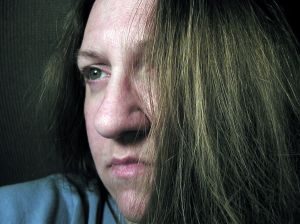Older Women Also Vulnerable To Disordered Eating And Weight Concerns
 Although many people associate eating disorders with young women and teens, there is increasing evidence that disordered eating may occur among women of all ages, including those 50 or older.
Although many people associate eating disorders with young women and teens, there is increasing evidence that disordered eating may occur among women of all ages, including those 50 or older.
A new study by researchers at the University of North Carolina Eating Disorders Program focused on the impact of body image and weight on women 50 and older. The study which is published in the International Journal of Eating Disorders involved 1,849 women with an average age of 59. Of these women, 27 percent were obese, 29 percent were overweight, 42 percent were normal weight, and 2 percent were underweight.
Eating disorder symptoms common among older women
The women were asked to participate in the Gender and Body Image Study (GABI) which involved a survey with the heading “Body Image in Women 50 and Over – Tell us What You Think and Feel”.
The surprising results revealed that symptoms of disordered eating were common among older women. 8 percent of the participants admitted to purging during the past 5 years, and 3.5 percent described binge eating during the previous month. Although these behaviors occurred most frequently among women in their early 50s, they were also reported by women over the age of 75.
Weight issues also Impacting Older Women
A remarkable 62 percent of the study participants stated that their weight or shape had negatively impacted their life. 79 percent of the women reported that their weight and body image affected their perception of themselves, and 64 percent admitted to thinking about weight and body image issues on a daily basis.
36 percent of the women informed the researchers that they had spent at least half their time dieting to lose weight during the previous 5 years. Diet pills were used by 7.5 percent of the women, excessive exercise by 7 percent, diuretics by 2.5 percent, laxatives by 2 percent, and purging through vomiting by 11 percent of the study participants. Two thirds of the women interviewed, admitted that they were unhappy with their overall appearance and shape.
Following this research study, researchers concluded that eating disorders do not discriminate on the basis of age, and that health care professionals should remain vigilant for disordered eating symptoms among women of all ages.
Source:
 Eating Disorder Self Test. Take the EAT-26 self test to see if you might have eating disorder symptoms that might require professional evaluation. All answers are confidential.
Eating Disorder Self Test. Take the EAT-26 self test to see if you might have eating disorder symptoms that might require professional evaluation. All answers are confidential.